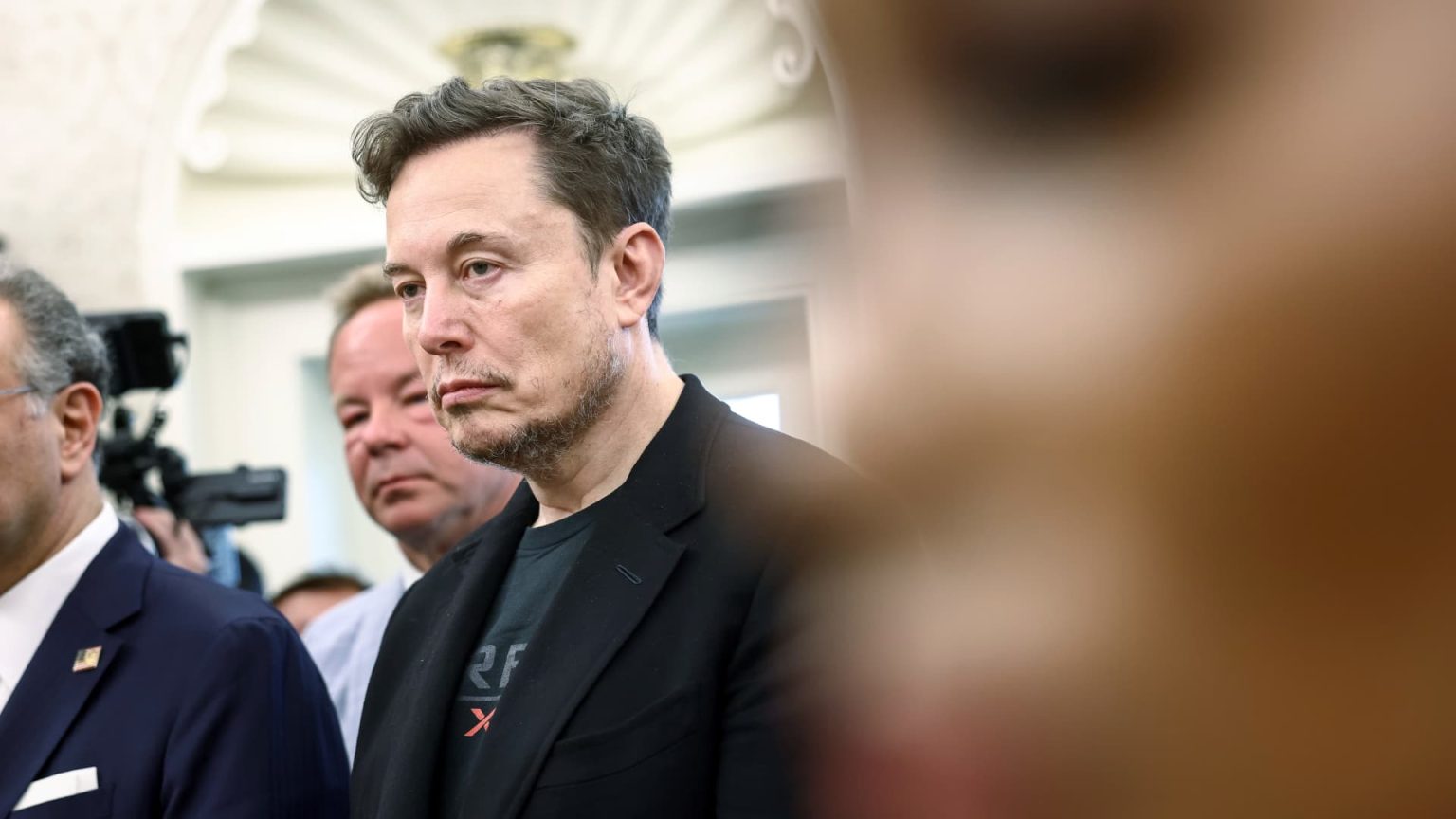In recent developments, Elon Musk, CEO of Tesla Inc., has found himself at the center of a controversy that coincides with a decline in Tesla’s stock price. Following anticipated second-quarter delivery figures and a public spat with President Donald Trump, shares fell 7% to close at $300.71. Amidst a backdrop of legislative changes and market predictions, analysts are concerned about the future impact on Tesla’s sales and financial stability.
| Article Subheadings |
|---|
| 1) Recent Stock Performance of Tesla |
| 2) Delivery Projections and Market Reactions |
| 3) Legislative Implications of the One Big Beautiful Bill Act |
| 4) Public Disparities with President Trump |
| 5) Future Outlook for Tesla and the Electric Vehicle Market |
Recent Stock Performance of Tesla
Tesla’s stock has recently come under significant pressure, closing at $300.71, down from a previous high of $323.63. This 7% drop comes ahead of the company’s anticipated second-quarter deliveries report, which has become a focal point for investors. The fluctuation in stock price signals a broader concern among market participants regarding the company’s performance in a competitive electric vehicle (EV) market. Stock analysts had previously noted the high volatility surrounding Tesla’s shares, often reacting sharply to both sales reports and external factors.
Delivery Projections and Market Reactions
Wall Street analysts project that Tesla will deliver approximately 387,000 vehicles for the second quarter, which reflects a troubling 13% decline compared to last year’s figures of nearly 444,000. This expected downturn is further compounded by the analysis from prediction market Kalshi, which suggests even lower expected deliveries of around 364,000 units. As the car sales figures serve as an essential indicator of the company’s health, stakeholders are understandably anxious about the implications of these figures on Tesla’s future performance.
Legislative Implications of the One Big Beautiful Bill Act
The recent legislative initiative, known as the “One Big Beautiful Bill Act,” has significant implications for Tesla and other stakeholders in the renewable energy sector. The bill, presently moving towards a final vote in the House, aims to institute cuts in spending programs that might heavily impact lower-income households. While Elon Musk has not explicitly objected to cuts in these programs, he has expressed concerns about provisions that could lead to increased national debt. He argues that the legislation could add approximately $3 trillion to the U.S. deficit, which directly influences economic confidence and potentially affects Tesla’s funding capabilities.
Public Disparities with President Trump
A contentious exchange between Elon Musk and President Donald Trump has heightened tensions around the One Big Beautiful Bill Act. Trump remarked that Musk seemed “upset that he’s losing his EV mandate,” a statement that underscores a growing strain in their relationship. The President alluded to the subsidies and incentives that have bolstered Musk’s businesses. Although Musk’s companies, including SpaceX and Tesla, have benefited from significant government contracts, this friction could have substantial effects on future funding as well as on public sentiment towards Tesla and its CEO.
Future Outlook for Tesla and the Electric Vehicle Market
As the auto industry moves towards a more competitive future, the potential implications of the One Big Beautiful Bill Act could hinder Tesla significantly. According to insights from the think tank Energy Innovation, cuts to renewable energy support in the bill would likely reduce EV sales by roughly 100,000 vehicles per year by 2035. Furthermore, the fiscal constraints may also impede initiatives within Tesla’s Energy division, which sells solar and battery energy systems to utilities and other clean energy developers. Analysts speculate that these challenges could create a complex landscape for Tesla as they navigate both governmental regulations and market competition.
| No. | Key Points |
|---|---|
| 1 | Tesla’s stock has recently declined by 7% ahead of its second-quarter delivery report. |
| 2 | Analysts are projecting a 13% decline in deliveries compared to last year. |
| 3 | The One Big Beautiful Bill Act has implications for both Tesla and the renewable energy market. |
| 4 | Tensions have risen between Musk and Trump regarding the financial future of Tesla and its projects. |
| 5 | Future EV sales could decrease due to cuts in renewable energy funding proposed in the legislation. |
Summary
The interplay of stock market performance, legislative changes, and corporate relationships poses a complex challenge for Tesla and its leadership moving forward. As the company faces a potential drop in deliveries and economic constraints, the impact of external pressures, both political and financial, could greatly influence Tesla’s viability in the EV market. With increased scrutiny from stakeholders and regulators alike, Elon Musk will need to navigate these challenges carefully to sustain Tesla’s growth and innovation in the years to come.
Frequently Asked Questions
Question: What are the anticipated delivery figures for Tesla?
Analysts are predicting Tesla will deliver approximately 387,000 vehicles for the second quarter, reflecting a 13% decline compared to last year.
Question: What is the One Big Beautiful Bill Act?
The One Big Beautiful Bill Act is legislation aimed at adjusting spending priorities, which may significantly impact funding for renewable energy and associated subsidies.
Question: How have recent political tensions affected Tesla?
Tensions between Elon Musk and President Donald Trump may influence the company’s funding and public support as they navigate the implications of proposed legislation.


